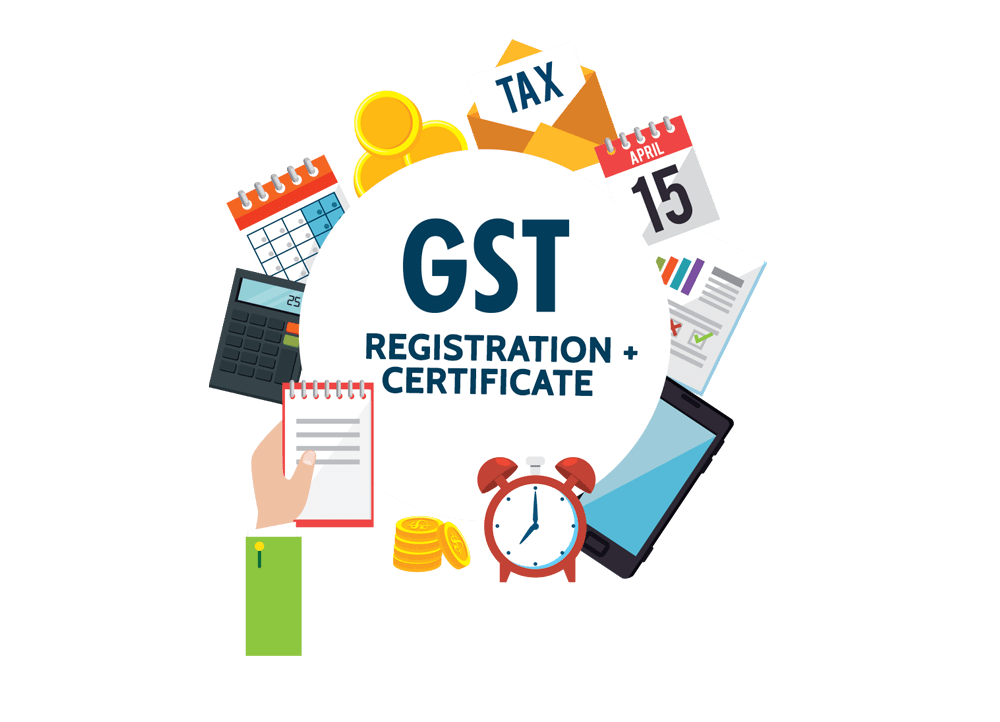Step-by-Step Refine for Singapore GST Registration Explained
Step-by-Step Refine for Singapore GST Registration Explained
Blog Article
Maximizing Tax Performance: Specialist Tips on Browsing the GST Enrollment Labyrinth for Local Business
Browsing the intricate landscape of Item and Services Tax Obligation (GST) enrollment can be a labyrinthine task for tiny companies intending to maximize their tax obligation effectiveness. In this discussion, we will discover professional understandings and workable guidance that can equip tiny companies to browse the GST enrollment maze successfully and maximize their tax effectiveness.
Qualification Criteria
Eligibility demands for Local business GST Registration include details criteria that companies must satisfy to abide with tax guidelines. To receive GST registration, a service has to have an annual turnover surpassing the threshold established by the tax obligation authorities, which differs by country. Additionally, companies associated with inter-state supply of services or products, or those offering items online, might be required to sign up for GST, regardless of their turn over. It is vital for businesses to accurately establish their qualification based upon these turn over thresholds to avoid penalties for non-compliance. Singapore GST Registration.

Paperwork Requirements
To efficiently finish the process of GST registration, tiny services should guarantee they have all needed documentation in order. The called for paperwork usually includes evidence of organization registration or address, identity and unification proofs of the business proprietor, photographs, checking account details, and evidence of the major workplace. Furthermore, businesses require to provide information of their business activities, consisting of the products or solutions provided. It is essential to make certain that all files are exact, up to date, and in the defined format to protect against hold-ups or denials during the registration process.
Maintaining all needed documentation arranged and readily accessible can enhance the registration procedure and help businesses conform with the requirements effectively. Meticulous focus to detail and adherence to the documents guidelines are crucial for a successful GST enrollment procedure for little organizations.
Timing Considerations
Considering the necessary documentation needs have been thoroughly addressed, the next essential element for small companies starting the GST registration procedure is the critical monitoring of timing considerations. Timing plays an essential role in GST registration, affecting not just compliance however additionally economic aspects of business. Tiny businesses require to meticulously plan the timing of their GST registration to make the most of benefits and lessen possible threats.

Moreover, services should align the timing of their GST registration with their functional preparedness. Appropriate preparation, such as upgrading accounting systems and training team, is essential to flawlessly incorporate GST demands into daily operations. By strategically taking care of timing factors to consider, small companies can navigate the GST enrollment procedure effectively Discover More and optimize their tax obligation performance.
Registration Process Tips
Successfully navigating the GST registration procedure requires little organizations to execute positive and critical registration process pointers. This includes company registration documents, proof of address, financial institution declarations, and identification proofs of the service owners.
Additionally, recognizing the limits and requirements for GST registration based on the certain state or territory where the service runs is vital. Some states have various turn over limits that cause mandatory registration, so being notified concerning these limits can aid businesses plan in advance.
One more valuable idea is to consider seeking expert aid from accounting professionals or tax obligation consultants that specialize in GST enrollment. Their experience can simplify the procedure, lower mistakes, and make certain conformity with all laws.
Compliance Ideal Practices
Browsing the GST enrollment procedure efficiently requires not only calculated registration process tips but also attentive adherence to compliance finest methods to guarantee continuous regulatory alignment. Local business have to focus on conformity to avoid charges and preserve a great standing with tax authorities. One important best practice is to maintain detailed and exact records of all transactions. This consists of invoices, receipts, and other economic files that may be needed for tax audits or conformity checks. Additionally, staying educated regarding any modifications or updates to GST regulations is necessary. If required to ensure they are satisfying all requirements, little business proprietors need to consistently examine government guidelines and look for professional recommendations. Singapore GST Registration. It is also suggested to file GST returns in a timely manner to avoid late charges and fines. By incorporating these conformity finest techniques right into their operations, small companies can navigate the intricacies of GST enrollment with confidence and effectiveness.
Conclusion
In conclusion, little companies can navigate the GST registration labyrinth by ensuring they meet eligibility criteria, gather required documentation, consider timing effects, adhere to enrollment procedure ideas, and comply with compliance best practices. By making best use of tax obligation performance with appropriate GST registration, companies can enhance more info here their economic monitoring and procedures.
Navigating the intricate landscape of Goods and Provider Tax Obligation (GST) enrollment can be a labyrinthine task for small companies aiming to optimize their tax obligation effectiveness.Qualification demands for Small Company GST Registration encompass details requirements that companies should fulfill to abide with tax policies. The needed documentation normally includes proof of organization enrollment or address, identification and consolidation proofs of the company proprietor, pictures, bank account details, and evidence of the principal area of service. Additionally, organizations need to give details visite site of their service activities, consisting of the goods or services provided.Successfully navigating the GST enrollment procedure needs tiny businesses to carry out strategic and positive enrollment process ideas.
Report this page